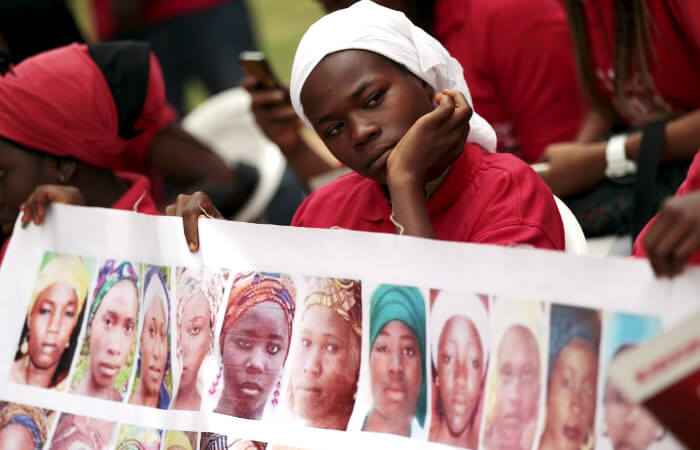UNICEF Says 9 Years After Chibok Abduction, Children In Nigeria’s North East Still Suffer Brutal Consequences Of Conflict
The United Nations International Children’s Emergency Fund (UNICEF) on Friday in Abuja said 9 years after the abduction of the 276 Chibok school girls in Nigeria’s North East region, children still suffer consequences of the conflict in the country.
UNICEF regretted that out of the 276 Chibok schoolgirls who were kidnapped from their dormitory in the dead of night on April 14, 2014, about 96 girls are still held captive, and thousands of children have experienced serious human rights violations.
Advertisement
It noted that 80 children were reportedly kidnapped by terrorists in Zamfara State’s Tsafe Local Government Area as recently as April 7, 2023 based on local news reports, which highlights the pressing need for action to be taken to safeguard children in Nigeria.
According to the Teachers’ Registration Council of Nigeria (TCN), over 6,800 children in the north-east have been the victims of over 2,400 verified incidents of grave violations since 2014.
Kidnapping of children (693 instances), killing and maiming (675 events), and recruitment or use of minors by armed organizations (700 verified cases) are the most frequent infractions.
UNICEF said alarmingly, conflict is having an adverse effect on education, with potential generational effects. It added that over 19,000 teachers were reportedly displaced, over 1,500 schools were closed due to insecurity, and 910 schools were supposedly destroyed between 2009 and 2022.
Advertisement
UNICEF’s representative in Nigeria, Cristian Munduate, said the data is alarming and a thing of concern, adding that there is a need to do more to ensure that children grow in a safe environment with access to quality education to attain their full potential.
“The statistics are disturbing; the reality is devastating. It has been 9 years since the horrendous abduction of the Chibok girls, yet the nightmare continues as children are still being kidnapped, forcibly recruited, killed and injured– their futures tore away,” said Munduate.
“We cannot turn a blind eye to the suffering of Nigeria’s children. We must do everything in our power to ensure they grow up in safety, with access to education and the opportunity to fulfill their potential.”
The organization commended the Nigerian government on signing the UNICEF-supported handover protocol and its pledge to contribute N144.8 billion ($314.5 million) to the Safe Schools Financing Plan in 2022.
It said it is prepared to assist the government with implementation of the plan to ensure that all children who came into contact with the armed conflict in Nigeria or who were freed from armed groups are reunited with their families as soon as possible and receive the benefits of reintegration programs.
Advertisement
In addition, UNICEF said it is committed to working with the Nigerian government and partners to ensure that every child enjoys their rights and lives in a peaceful and prosperous society.
To preserve children’s rights and well-being, UNICEF Nigeria also urged all parties to the conflict to uphold international humanitarian law and human rights legislation.



